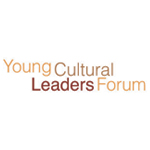
How have the dramatic changes impacted the nature of cultural activity and how are cultural organizations reacting to this new normal at the local level? How do we interact with virtual audiences and respond to increased expectations around participation?
Our organization works on a global level as readily and as actively on a local level. This has only recently been the case, as over the last few years it has been more a global organization than a local one; leading and participating in high level strategic projects around open data, smart cities and urban design, but not so readily welcomed or listened to on a more local level. This is changing.
The opening provocation (from Diane Ragsdale) has stuck in my mind somewhat. It was fascinating and spot on in so many of its insights, particularly around the way in which national and strategic arts funders are not being bold enough when they cut funding to smaller, more dynamic organizations, in order to maintain the status quo with the big (aka too big to fail) ones.
However, then we got onto the thorny subject of the creative economy. I say this with the caveat that, like so many of these issues, this is a subjective area. Diane’s premise was built around kicking against the definition of a “creative economy” because it leans towards the market paradigm that arts organizations should not fall subject to, and went on to imply that the arts organizations who do, are already somehow dead. Now I completely understand her point about quality art, clarity of mission, retaining focus, and not being wedded to the economic output argument. However, I struggle (to put it mildly) with the notion that good art can’t be at all commercial. I find that paradigm an out of date one, relevant only to high art, and valuable arts education work. Most places in between that, arts organizations and artists have the ability to capitalize some of their skills, often in order to liberate pure creative time, used for pushing forward their own discipline.
There are so, so many examples of this, but the structural assumption that (particularly, in my experience, within the visual arts) artistic endeavor that is fundamentally built on, or involves the development of, technology is somehow less valuable, is in my opinion false.
Marius Watz says it far better than I ever could here:
[scribd id=110282792 key=key-147ywougim7j99bm06oj mode=scroll]
Also, is this not real art? http://futureofstorytelling.org/about/



